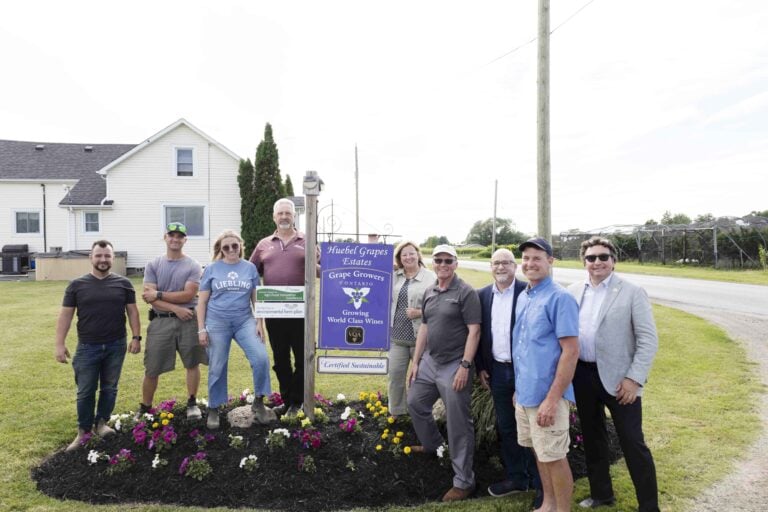Niagara-on-the-Lake Hydro tackled outages caused by the Feb. 6 ice storm quickly and effectively, says a senior official with the utility.
During last Wednesday’s storm, St. Davids and Virgil were affected the most, putting many people without power for a few hours throughout the day, said Kazi Marouf, vice president of operations for NOTL Hydro.
“We had two major pockets that were out — one in St. Davids and one in Virgil. Those are larger pockets and we focused on those knowing that quite a few customers were out at the same time.”
He said as soon as hydro workers discovered the source of the outages, they were able to tackle the issue and restore power quickly.
In both cases, Marouf said, large branches had fallen across the lines.
“We had to go out and cut those branches, repair anything that was damaged as a result of that, and then restore the power supply.”
NOTL Hydro has devices in the field to alert it to any disruption in service. Smart meters report back to hydro’s outage management system when there’s a disruption in service. That gives an early warning that power has been interrupted in certain areas and allows hydro workers to troubleshoot the problem before they even receive calls of outages.
“We have a good idea automatically through this system and devices in the field.”
When outages are detected and calls are received, hydro staff rank the seriousness to determine which areas to address first. They also determine if the issue is theirs.
“We like to confirm that the problems are ours when a customer calls us.”
The most serious outages, such as wires on a car or fallen poles, are tackled immediately as they can be “extremely dangerous.”
Inclement weather proves dangerous, but Marouf said workers are “highly trained” and always keep safety at the forefront.
“Everything that they work on is safe, in good weather and in bad weather. Trucks, equipment, clothing, tools and so on are safe for them to be working in.”
Using judgment and common sense, workers aim to restore power quickly, but will never put themselves at risk. They will never work on energized wires and will stop if the weather gets too dangerous.
“Where it becomes trickier is when they are doing work during an ice-storm or high winds. In those areas they use their better judgment.”
Hydro staff often work together with other services: road work crews, police and fire departments and other utilities to ensure they are safe and the surrounding area isn’t hazardous.
“They are asked for help to clear the way or protect the area. All of that then becomes a wider team effort. Working in the inclement weather hazards out there, there are ways to be able to get around that, which allows to do our work safely.”
With all the work they do, Marouf said hydro staff receive some complaints, but mostly thank yous. He said he understands why it’s frustrating for customers who have been out of power for long periods to not know when it will come on.
“That’s always a difficult thing to guess. It’s very hard to tell customers, ‘Oh, you’ll be back on in a certain amount of time,’ when it may take longer,” he said. “That waiting period sometimes frustrates people, but there’s nothing that we can do. We can just do our best effort in the meantime.”










